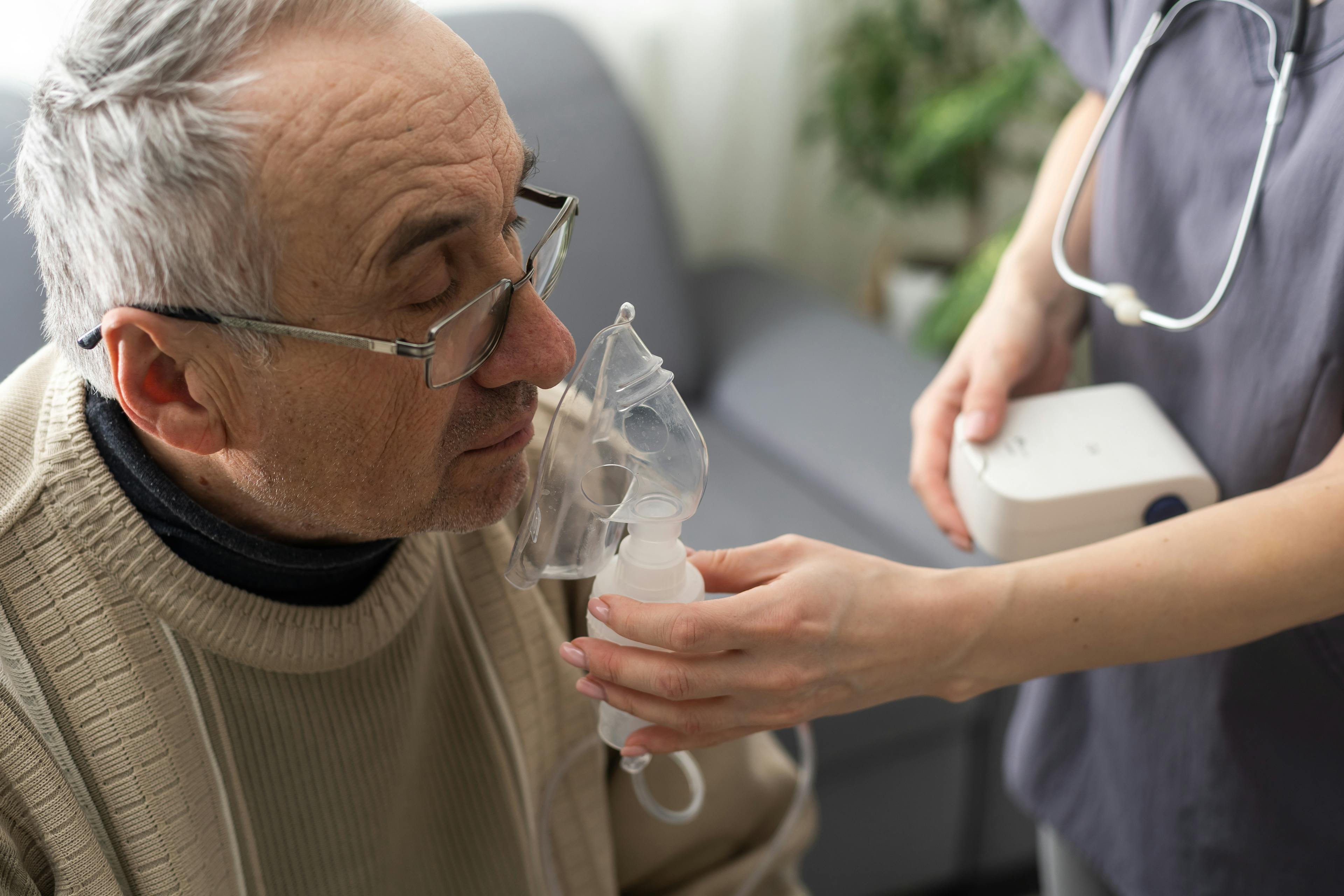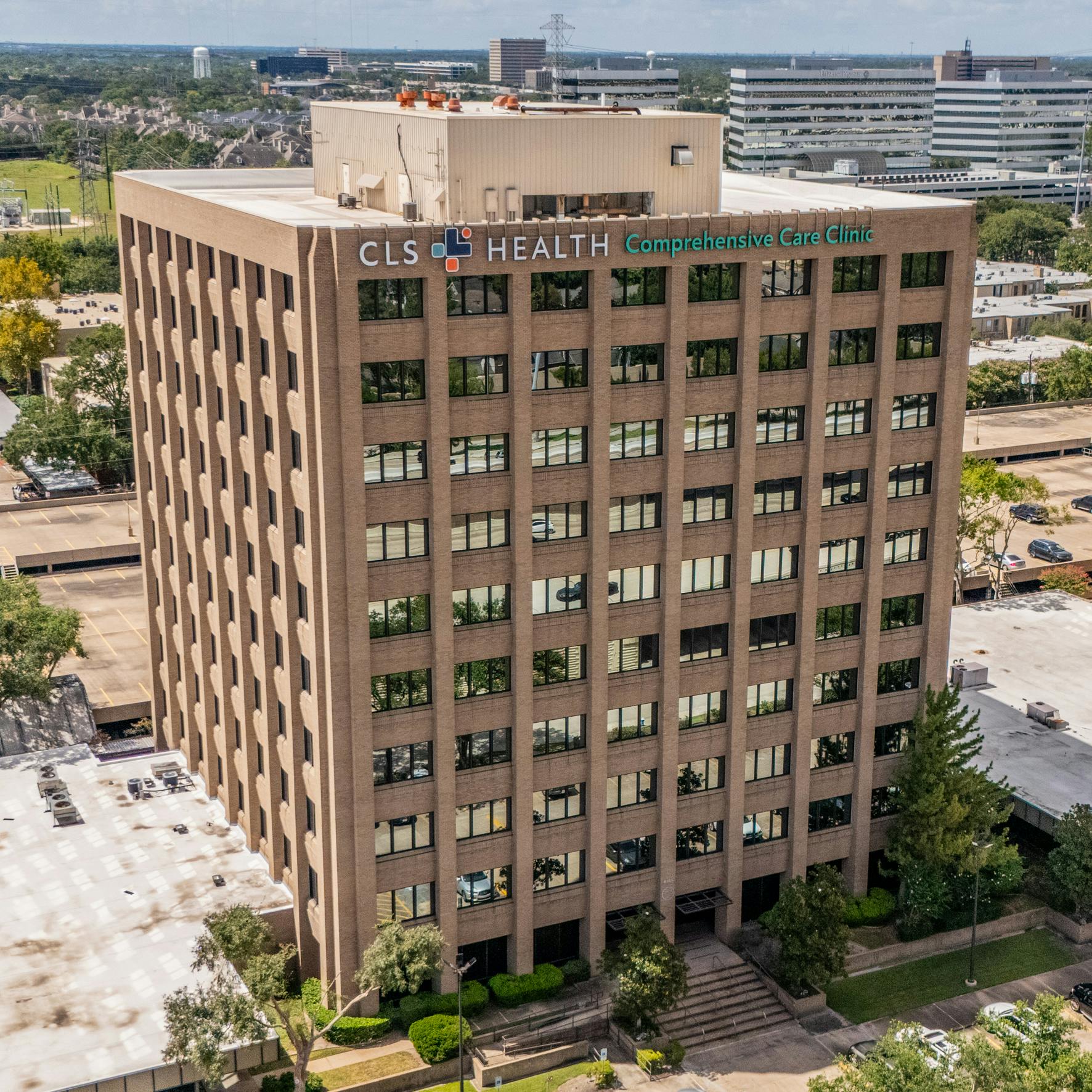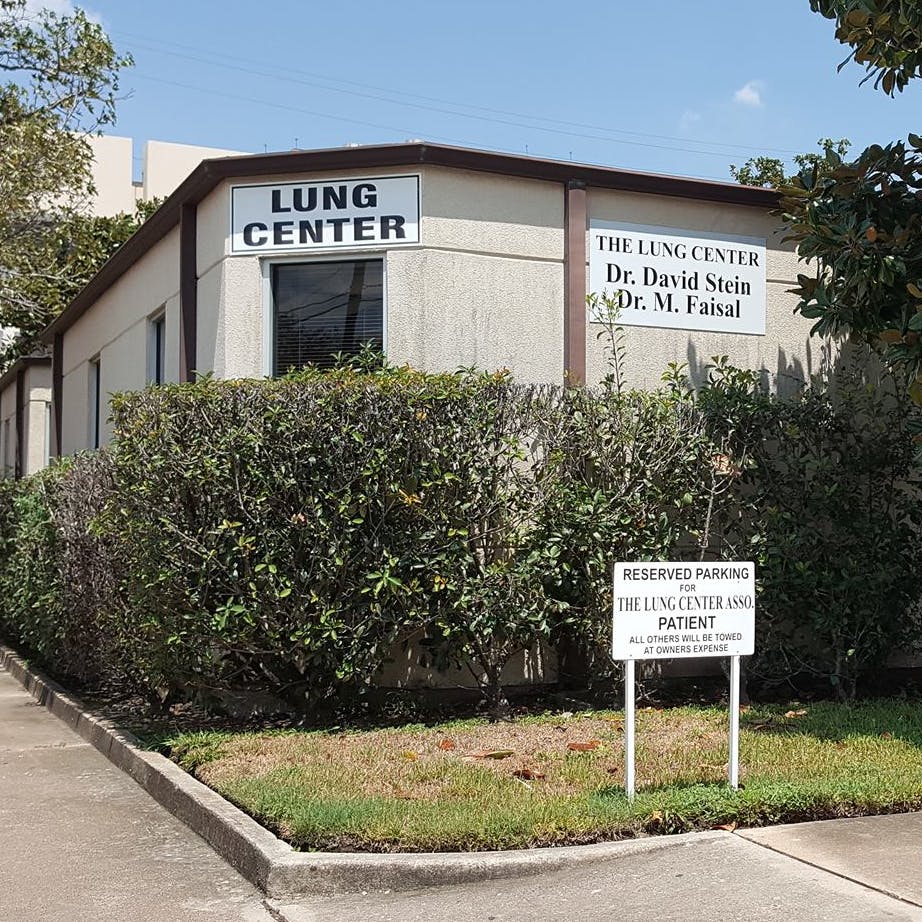Pulmonology

Comprehensive Lung, Sleep, and Critical Care
Breathing difficulties affect everything you do and not knowing the cause can be just as distressing as the condition itself. If you are experiencing chronic respiratory symptoms, acute breathing difficulties, or unexplained pulmonary changes, we are here to help.
Pulmonary specialists at CLS Health diagnose and treat the complete spectrum of respiratory conditions, from asthma and COPD to pulmonary fibrosis and sleep-related breathing disorders. Our pulmonary, critical, and sleep medicine experts use state-of-the-art diagnostics to identify the root cause of symptoms and deliver targeted treatment.
With doctors on staff at Houston’s top hospitals, our pulmonary medicine team provides seamless coordination between outpatient visits, hospital stays (if needed), and follow-up care. This ensures you are always supported at every stage of treatment and recovery.
When should I see a pulmonologist?
You should see a pulmonologist if you experience:
- Chronic cough lasting more than 8 weeks
- Frequent shortness of breath or wheezing
- Unexplained fatigue or difficulty breathing
- Lung disease symptoms that do not improve with primary care treatment
- Abnormal chest X-ray or CT scan results
Respiratory Conditions Treated
- Asthma – A chronic condition causing airway inflammation, wheezing, and shortness of breath, often triggered by allergens or environmental factors.
- Chronic Obstructive Pulmonary Disease (COPD) – A progressive disease, including emphysema and chronic bronchitis, leading to airflow obstruction and breathing difficulties.
- Pulmonary Fibrosis – A lung disease characterized by scarring of lung tissue, making breathing difficult and reducing oxygen levels.
- Cystic Fibrosis – A genetic disorder that leads to thick mucus buildup in the lungs and digestive system, causing frequent lung infections and breathing difficulties.
- Pneumonia – A lung infection that causes fever, cough, and difficulty breathing, often bacterial or viral in origin.
- Tuberculosis (TB) – A bacterial lung infection that can become chronic and contagious if untreated.
- Fungal Lung Infections – Infections like histoplasmosis or aspergillosis, common in people with weakened immune systems.
- Lung Cancer – A malignant disease of the lungs, often linked to smoking, environmental exposures, and genetic factors.
- Lung Nodules & Masses – Small growths in the lung, which may be benign or early signs of lung cancer.
- Occupational Lung Diseases – Conditions caused by prolonged exposure to dust, chemicals, or pollutants in the workplace.
- Silicosis & Asbestosis – Lung diseases caused by inhaling fine silica or asbestos particles, leading to lung scarring and breathing difficulties.
- Pulmonary Hypertension (PH) – High blood pressure in the lungs’ arteries, leading to shortness of breath, fatigue, and chest pain.
- Chronic Thromboembolic Pulmonary Hypertension (CTEPH) – A form of pulmonary hypertension caused by old blood clots in the lungs.
- Obstructive Sleep Apnea (OSA) – A condition where the airway collapses during sleep, causing snoring, gasping, and daytime fatigue.
- Central Sleep Apnea – A neurological disorder in which the brain fails to send signals to control breathing during sleep.
- Other Sleep Disorders – Conditions affecting sleep quality, oxygen levels, and overall lung function.
- Chronic Cough – A persistent cough lasting more than eight weeks, often linked to asthma, GERD, or infections.
- Shortness of Breath (Dyspnea) – Difficulty breathing, which may be caused by lung disease, heart conditions, or obesity.
- Abnormal Chest X-ray or Lung Imaging – Evaluation of nodules, fluid buildup, or scarring found in imaging tests.
Treatments & Services
- Pulmonary Function Tests (PFTs) – Measures lung capacity, airflow, and oxygen exchange.
- Bronchoscopy – A minimally invasive procedure to examine the airways and collect lung tissue samples.
- Low-Dose CT Scan – Used for lung cancer screening and detecting early lung abnormalities.
- Oxygen Saturation Testing – Evaluates oxygen levels in the blood to assess lung function.
- Sleep Studies (Polysomnography) – Diagnoses sleep apnea and other sleep-related breathing disorders.
- Inhalers & Nebulizers – Deliver medications directly to the lungs for asthma and COPD treatment.
- Biologic Therapies for Severe Asthma – Advanced medications targeting specific inflammatory pathways in asthma.
- Oxygen Therapy – Supplemental oxygen for patients with chronic lung diseases to improve breathing.
- Pulmonary Rehabilitation – A structured program that includes breathing exercises, education, and physical activity to improve lung function.
- Lung Biopsy – Performed via bronchoscopy or CT-guided techniques to diagnose lung diseases and cancer.
- Thoracentesis – A procedure to remove excess fluid from the lungs, often needed for conditions like pleural effusion.
- Balloon Pulmonary Angioplasty (BPA) – Used to treat chronic thromboembolic pulmonary hypertension (CTEPH).
- Endobronchial Valve Placement – A minimally invasive procedure to improve lung function in severe COPD and emphysema patients.
Lung Cancer Screening – Low-dose CT scans to detect lung cancer in high-risk individuals, such as long-term smokers.
Don't see your insurance listed? We may still accept it! CLS Health updates accepted insurance plans regularly. Please call (281) 724-1860 to verify your coverage.
- Aetna Select
- Open Access Selects
- Elect Choice
- Aetna Open Access Elect Choice
- Aetna Choice POS II
- Managed Choice
- Open Choice PPO
- Aetna Medicare Advantage Plans
CLS Health does not accept:
- Aetna CVS Marketplace Plans
* Some providers may not accept this insurance, please call to confirm
- Superior Ambetter Core (Complete, Clear, Focused, Standard Silver and Gold)
- Superior Ambetter Value (Clear Value Silver, Focused Value Silver, CMS Standard Silver & Gold Value, Everyday Value Gold)
- Superior Ambetter Virtual (Ambetter Virtual Access Silver, CMS Standard Virtual Access Basic Silver, Ambetter Virtual Access Gold)
- Superior Health Plan CHIP*
- Superior Health Plan MAPD (Medicare Advantage Prescription Drug)
- Superior Health Plan Medicare
- Superior Health Plan MMP Medicaid*
- Superior Health Plan MMP Medicare
- Superior Health Plan STAR*
- Superior Health Plan STAR Kids*
- Superior Health Plan STAR+PLUS*
CLS Health participates in most Blue Cross Blue Shield plans including:
- Blue Choice PPO
- Blue Essentials
- Blue Essentials Access
- HealthSelect
- HealthSelect of Texas In Area
- Consumer Directed HealthSelect in Area
- HealthSelect of Texas Out of State
- Consumer Directed Health Select Out of State
- HealthSelect Secondary 65+
- Medicare Advantage HMO
- Medicare Advantage PPO
- Medicare Advantage Value HMO
- POS
- Traditional/Par Plan
- TRS-Active Care
- TRS-Care Standard
- BCBS MyBlue Health (Marketplace)
*Some providers may not accept Community Health Choice, please call to confirm
- MarketplacePremier
- Medicaid*CHIPCHIP PerinateSTAR
- Medicare AdvantageDual-Special Needs Plan (D-SNP)
CLS Health accepts most Cigna plans, including:
- Cigna HMO
- Cigna Local Plus
- Cigna Open Access Plus
- Cigna PPO
- ChoiceCare PPO
- EPO
- HMO
- HMO Premier
- Medicare Advantage Plans
- HumanaChoice - Medicare Advantage PPO plan
- Humana Gold Choice - Medicare Advantage Private Fee-for-Service (PFFS) plan
- Human Gold Plus - Medicare Advantage HMO & Special Needs Plan
- Military (TRICARE South Region Military Health Plan)
- POS - including Choice POS, National POS Open Access/Plus and Preferred POS Open Access.
- PPO
*Some providers may not accept United Healthcare, please call to confirm
- Commercial, HMO, POS, EPO and PPO Plans (Charter, Choice,Core, Doctors Plan, Freedon, Heritage, Navigate, Nexus ACO, Options PPO, Passport Connect, Select)
- Indemnity
- Medicare Advantage (AARP, Care Improvement Plus, C-SNP, D-SNP, I-SNP, Erickson Advantage, ERS Medicare Advantage, TRS-Care Medicare Advantage, UnitedHealthcare Chronic Complete, UnitedHealthcare Connected (Medicare-Medicaid Plan), UnitedHealthcare Dual Complete, UnitedHealthcare Group Medicare Advantage PPO, United Healthcare Medicare Complete)
- Community Plans* (CHIP, CHIP Perinate, Star, Star Kids, Star Plus, MMP)
- Wellmed (Wellmed Dual SNP Focus, Wellmed Medicare Advantage Focus)
*Some providers may not accept Wellpoint, please call to confirm
- Medicaid (All Texas Plans Including the Below)*
- CHIP
- CHIP Perinate
- STAR
- STAR+PLUS
- STAR Kids
- Medicare Advantage
- C-SNP
- D-SNP
- I-SNP
- Medicare Advantage HMO
- Medicare-Medicaid (MMP)
- Medicare-Medicaid Program (MMP)
- STAR+PLUS MMP
*Some providers may not accept insurance, please call to confirm
PPO Networks
- Beechstreet PPO
- Carnival Cruise Lines PPO
- Envolve Benefit Options Vision-PPO, HMO
- First Health
- Curative/First Health
- Galaxy Health Network
- HealthSmart Preferred Care
- Accel
- Healthsmart Payors Organization
- Multiplan PPO
- Tricare (Humana) PPO/Prime
Employer-Specific Plans
- Brazoria County Employees – Aetna TPA Brazoria County Employees
Workers’ Compensation Plans
- Workers’ Comp
- Auto & Workers’ Comp
Medicare and Medicare Advantage
- Medicare Traditional
- Medicare Advantage
- Memorial Hermann Health Solutions Commercial and Medicare
- Molina Medicare Complete Care HMO SNP
- Medicare-Medicaid Program (MMP)
- STAR+PLUS MMP
- Alignment Health Plan
- AllyAlign Health
- American Health Plans
- Florida Complete Care
- Gold Kidney Health Plan
- Imperial Health
- Independent Health
- Kaiser Foundation Health Plan of Washington
- Kaiser Foundation Health Plan of Colorado
- Mass Advantage
- Presbyterian Health Plan
- PriorityHealth
- Provider Partners
- SCAN
- UCare
- Vantage Health Plan
- Verda Healthcare
- Zing Health
Medicaid and CHIP Programs
- Molina Healthcare* (Marketplace, Medicaid, CHIP, CHIP Perinate, STAR, STAR Kids, STAR+PLUS)
- Texas Children's Health Plans*
- TMHP (Traditional Medicaid) Traditional Medicaid
Specialty Plans
- VA Community Cares Network CCN
FAQs
Lung diseases can develop due to genetic, environmental, and lifestyle factors. The most common risk factors include:
- Smoking and secondhand smoke exposure
- Air pollution and exposure to harmful chemicals (e.g., asbestos, silica, radon)
- Chronic respiratory infections
- Family history of lung disease
- Occupational hazards (e.g., exposure to dust, fumes, and industrial chemicals)
Chronic Obstructive Pulmonary Disease (COPD) is a progressive lung disease that makes breathing difficult. It includes emphysema and chronic bronchitis and is primarily caused by smoking, long-term exposure to pollutants, and genetic factors. Symptoms include:
- Shortness of breath
- Chronic cough with mucus
- Wheezing and chest tightness
- Fatigue and frequent lung infections
Pneumonia is a lung infection caused by bacteria, viruses, or fungi. Common causes include:
- Bacterial pneumonia (e.g., Streptococcus pneumoniae)
- Viral pneumonia (e.g., influenza, COVID-19)
- Fungal pneumonia (e.g., histoplasmosis, aspergillosis)
Risk factors include weakened immune systems, chronic lung diseases, and hospitalization.
Lung cancer symptoms often appear in later stages and may include:
- Chronic cough that doesn’t go away
- Coughing up blood (hemoptysis)
- Shortness of breath and wheezing
- Unexplained weight loss and fatigue
- Chest pain that worsens with deep breathing
- Pulmonary Function Testing (PFT) measures how well your lungs work by evaluating lung volume, airflow, and oxygen exchange. It helps diagnose asthma, COPD, pulmonary fibrosis, and other lung diseases. Tests include:
- Spirometry – Measures airflow obstruction.
- Lung volume tests – Assess how much air your lungs can hold.
- Diffusion capacity tests – Determine how well your lungs transfer oxygen into the blood.
A bronchoscopy is a minimally invasive procedure that allows a pulmonologist to examine the airways and lungs using a flexible tube with a camera. It is used to:
- Diagnose lung infections, tumors, and chronic cough
- Collect tissue samples (biopsy) for lung cancer evaluation
- Remove mucus blockages or foreign objects from the airway
Pulmonologists perform both diagnostic and interventional procedures to evaluate and treat lung diseases, including:
- Bronchoscopy – Airway examination and biopsy.
- Pulmonary Function Testing (PFT) – Lung capacity and airflow analysis.
- Thoracentesis – Removes excess fluid from the lungs.
- Endobronchial Ultrasound (EBUS) – Diagnoses lung cancer and lymph node abnormalities.
- Lung biopsy – Identifies lung disease causes and malignancies.
To maintain healthy lungs:
- Quit smoking and avoid secondhand smoke
- Exercise regularly to strengthen lung function
- Avoid exposure to air pollutants and wear masks in hazardous environments
- Get vaccinated for pneumonia, flu, and COVID-19
- Maintain a healthy diet rich in antioxidants and omega-3 fatty acids
Seek medical attention if your shortness of breath is:
- Sudden or severe
- Accompanied by chest pain or dizziness
- Worsening over time
- Associated with swelling in the legs or persistent cough
These symptoms may indicate lung disease, heart problems, or other serious conditions.







